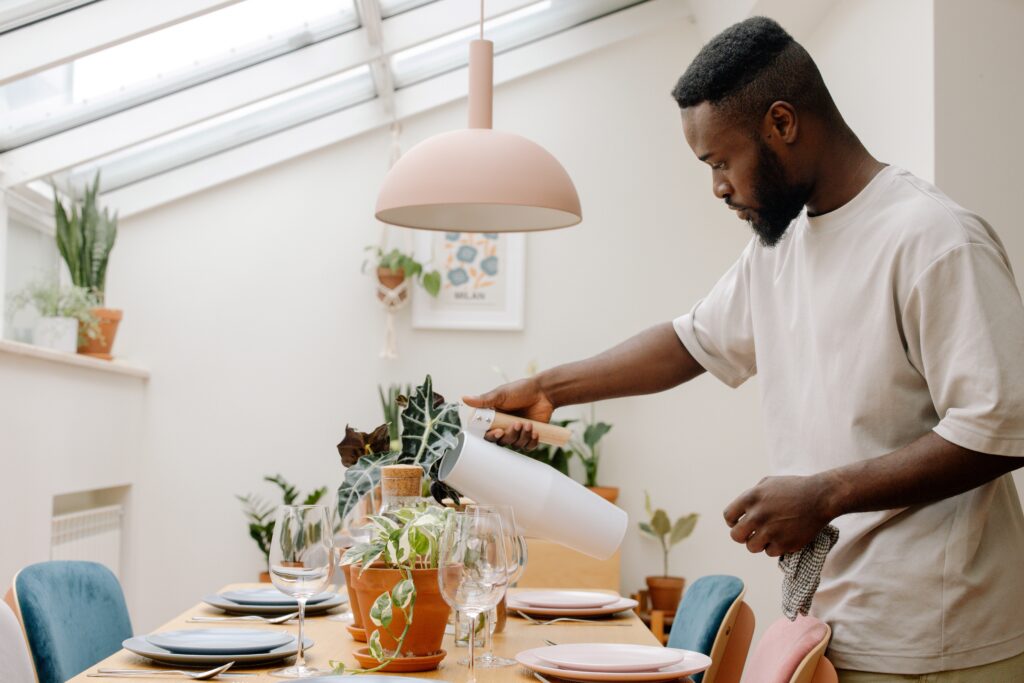Do Baby Boomers have greener thumbs than other generations?
When it comes to pandemic pursuits, Gen Z bought houseplants to improve mental health—but Baby Boomers kept their plants alive, according to a new study.
Along with baking bread, pickling, and drinking copious amounts of wine, many Americans turned to new pursuits to alleviate stress and boredom. This included a craze for houseplants to brighten and detoxify abodes—and care for a living thing while so many of us were isolated or unnerved by the climbing statistics of illness and death.
But what was meant to be a fun hobby was challenging for some new ‘plant parents’, especially young adults. As the pandemic enters its third year, stress and dead plants have caused folks to give up the hobby altogether, according to a new study by Trees.com. Unless you’re of an older generation, that is.

Key Findings:
- 1 in 4 plant owners started collecting houseplants as a pandemic hobby
- Half of new plant owners started collecting houseplants to improve mental health
- Gen Z had the highest rate of dead house plants among pandemic-era “plant parents”
- 32% of Americans who started collecting house plants during the pandemic have quit the hobby
Baby boomers are the most likely to have made it to this point in the pandemic with all their plants alive, healthy and intact. Fifty-five percent of plant owners 55 and older did not have any plants die within the last two years.
Among Americans who owned and maintained houseplants during the pandemic, 18-24 year-olds are most likely to be new to the hobby. Thirty-eight percent of plant owners in this age group started buying and maintaining houseplants for the first time during the pandemic.
By comparison, owning house plants is a new hobby for only 18% of people 55 and older.
Unfortunately, the house plant-buying experiment didn’t end well for seven out of 10 Gen Zers who killed their plants. And Gen Zers were twice as likely as older Americans to abandon plant ownership.
Meanwhile, 58% of older plant owners nursed dying plants back to health, compared to 48% of Gen Z plant owners.

Landscape and garden professional Jo Cosgrove says people turned to plants during this stressful time to relieve stress.
“Houseplants make a home feel fuller, more alive, more activated and they need care,” Cosgrove says. “Brain health is directly linked to learning new things, so learning how to care in a new way, learning the rhythm and needs of plants, is one of the best forms of self-care I can think of.”
The majority of new plant parents were conservative in their purchases, buying between 1 and 6 houseplants. However, some new plant enthusiasts went all in, with 15% buying 7-9 houseplants, while 16% bought 10 or more.
“Anyone who has a hobby that involves a living thing, from dogs to sourdough starters to houseplants, can tell you that there is a lot of margin for error,” Cosgrove says. “Patience and keen observation are a huge part of keeping houseplants, so it’s key to practice perseverance and forgive your failures in order to grow into being a good plant parent.”
And those of us who have made it to forty and beyond possibly have more of what it takes to keep a plant alive, starting with a practical purchase choice.
“If one chooses a high-need, finicky plant, such as a rare orchid or maidenhair fern, to learn on, they really are starting at a disadvantage,” Cosgrove says.
Instead, she recommends adaptive plants, like a snake plant or pothos, that can endure a variety of conditions.
Read the full study here.






